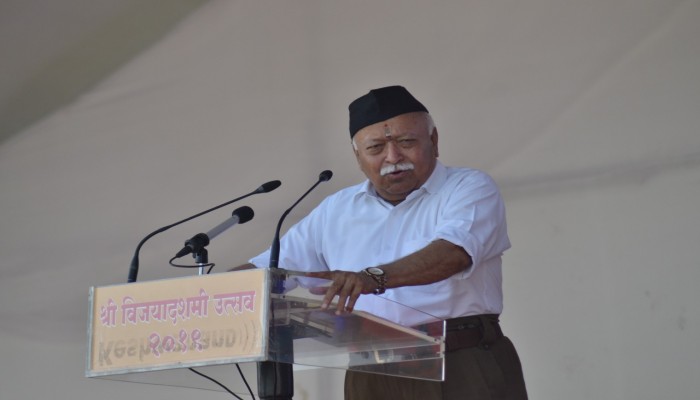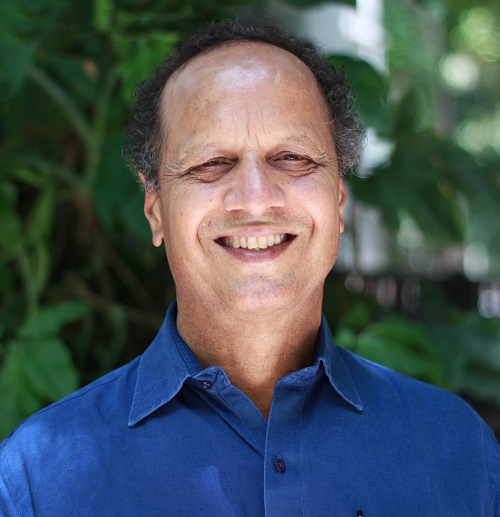An open letter to Dr Mohan Bhagwat on the role of the RSS and its media interaction
- In Politics
- 04:56 AM, Jan 09, 2020
- Hemant Karandikar
Namaskar Dr. Mohan Bhagwat,
The Modi government’s important measures like banning triple talaq, abrogation of article 370, and Citizenship Act Amendment for giving relief to minorities in neighboring countries have received widespread popular support. However, each of these steps received misleading coverage in most Indian media. The Anti-CAA riots are another front opened by those opposed to India’s integrity. Most of mainstream media continue to create a false picture of widespread popular opposition to CAA, NPR, and NRC. Though many social media activists keep calling out the obvious and deliberate campaign of misinformation, it isn’t enough.
This poses some questions: if a law that seeks to give accelerated citizenship to persecuted minorities in Pakistan, Afghanistan, and Bangladesh, can invite such a vicious campaign of riots to create divisions, what would happen if a nation-wide NRC law is enacted for deporting illegal immigrants? What would happen if a law to ban religious conversions through deceit, inducement, or threat is enacted?
Clearly, whatever is being done by patriotic people in the space of media is not enough. Clearly, following parliamentary and constitutional processes is not enough. I feel that the RSS and organizations who work for a strong and prosperous India need to think about role of media in our society and their role in media.
In a series of your speeches in Delhi on September 17, 18, and 19, 2018 you briefly touched upon what RSS thinks about publicity: you said that RSS doesn’t do any work other than developing our society and unifying Hindus. RSS neither seeks credit nor publicity for its work. Swayamsevaks too don’t seek publicity for work because they consider it to be their duty. However, you also said that RSS views and good work done by swayam sevaks need to be communicated due to changing times.
Funding and views dictate and make news, technology is used to make them go viral.
Today almost every major media group - be it traditional or electronic -transmits content that is heavily biased against Hindus if not supportive of breaking India forces within and outside the country. On the other hand, information about the good work done by RSS, Hindu organizations and others doesn’t reach common people. Consequently, the picture of India that gets painted has these broad, sweeping, and damaging strokes:
-Minorities are discriminated against and persecuted.
-Dalits and other backward classes don’t get justice.
-Hindu religion oppresses women.
-Women are unsafe.
-Hindu festivals, customs, and culture are backward, regressive, and harm the environment.
-Riots and terror happen because some communities feel unsafe.
-Freedom of expression and right to dissent are curtailed.
-Hindus don’t care for Dalits and other oppressed people. Conversions happen because (only) Christian missionaries do charity work. They take care of the poor, Dalits, and orphans.
A similar picture also gets painted in western media. We are surrounded by such views presented as news or ‘reports’. This builds upon and compounds the damage done by our westernized education. Consequently, many educated Indians hold one or more of the above points to be valid.
With the spread of western education and increasing access to electronic media like YouTube, Facebook, WhatsApp, TV channels, and aggregated news content on mobiles, the problem mentioned above will only get much worse.
In my discussions with people working in media space the following points emerged:
-We don’t research, study, and engage with issues that get articulated by NGOs, civil society, some political parties, e.g. right to information, NRC (how cost of NRC and detention centers is huge), gender issues.
-We need to use media better in identifying subjects, facts and presentation. We need to be better in the use of language.
-Our media reach is insignificant but we feel that ‘since we are doing our duties, the results don’t matter’.
-We are divided in (small) media camps and don’t cross-share news and views.
-We let debates happen along western binaries like left/right, progressive/backward, religious/secular etc.
-We are in reactive mode.
-We lack powerful media channels.
-We don’t have think tanks. We don’t produce adequate research content.
As someone who has been blogging and writing articles and making social media posts on current affairs, economy, and technology, I can relate to many of the points above.
There are many examples of other countries in which entire narratives and public opinions were shaped by some highly motivated and coordinated campaigns. We are witnessing it now in India. So, far we have been fortunate that our elections didn’t get compromised by extraneous and malicious manipulation of public opinion. We can’t take it for granted anymore.
To me, this seems like an unequal fight.
While the fundamental work of building a strong united society must go on, there is a danger that forces inimical to our country can undermine it through clever and coordinated use of media.
We look forward to your guidance.
Dhanyavad
Hemant Karandikar







Comments